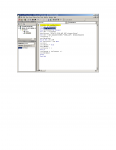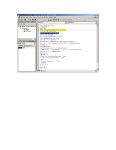i was thinking random was what you were after and i would have thought it more statistically valid but i'm not a statistician either. v.khawaja's post above will pick you every 5th record out rather than a random selection. The code i wrote could select the first 200 records and no others, that's the way it goes. If you need any help getting
v.khawaja 's code to work post again
HTH
Drew
v.khawaja 's code to work post again
HTH
Drew


